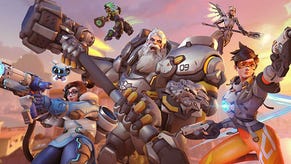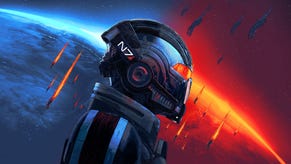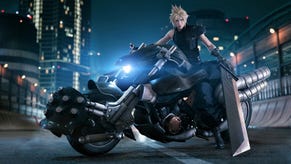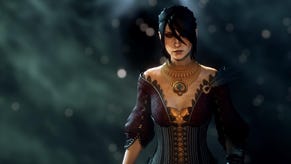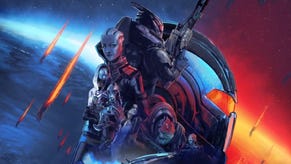Mass Effect 2
Of things to come.
The manner in which the resulting story is told is also an improvement. The first game's system of having you select a few short words, which Shepard then paraphrases and vocalises at greater length in a manner that suits your chosen tone and alignment, remains, but characters now embellish these exchanges by moving around during conversation, and there are infrequent prompts to interrupt proceedings with a positive or negative action - by comforting a grieving mother as she begins to break down, for instance, or more likely by shoving a garrulous mercenary out of a tempting window.
Even when the game removes direct interaction from proceedings, it's only to facilitate fantastic action set-pieces, and these continue to branch and play out depending on the things you have set in motion. The way your inclinations influence proceedings has also changed in conversation, with the bonus conversation options - the simplistic but effective opposing duo of persuasion or intimidation - now available depending on your overall alignment rather than where you manually stick your skill points, allowing you to focus those fruits of the combat experience on upgrading combat abilities instead.
These too are simplified and consolidated. When the original Mass Effect was first released, cover-based shooting was becoming all the rage and the game suffered criticism for its restrictive, slightly clumsy interpretation, but Mass Effect 2 is unlikely to face the same complaints, with smoother handling and the majority of locations designed to suit its few remaining limitations rather than emphasise them.
There is also a better heads-up display to help decipher an enemy's vital statistics - its health, but also shields and barriers - and colour coding assists in establishing which abilities to deploy in response. Attacking and healing options have also been brought together in a tighter control scheme and interface, so you are rarely in any doubt where to reach for something or what a button does, even though you retain the ability to create combat shortcuts and order your choice of two wingmen around.
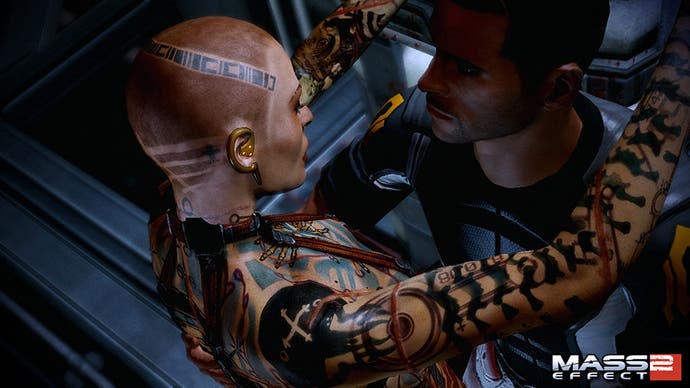
This increased user-friendliness is evident throughout the game, with unintrusive pop-ups to inform you where to look for clarification among the better-organised menus, and elements like the confusing inventory system stripped away so that swapping to a new gun no longer involves digging out the manual. Thanks to technology apparently pilfered from the first game's Geth enemies, we also now have, er, guns that you reload manually, rather than guns that you fire for a few seconds then stand around waiting to cool down. It's symptomatic of the way the fiction has been lovingly refined to accommodate superior mechanics.
While the list of possible abilities and specialisations may look short when you first encounter it, the range of options also increases as you hit certain milestones, and unlike the first game, which linked certain elements of character progression to a specific "rogue VI" mission that not everyone bothered to do, the sequel makes these developments and the processes by which you unlock them more inviting.
Despite some theoretically brutal refinements (no weapon drops!), the game can't be accused of dumbing down, either, as things that seem to be gone are often still there to discover in a more logical way, and the simplification frees you to experiment in a manner that the first game struggled to encourage. Certain biotic and tech powers are analogous to one another (incinerate and throw might as well both be called "homing fireball", for example), but other class-specific powers are more exotic, and allow for tactics that suit the challenges of the game's harder difficulty settings.
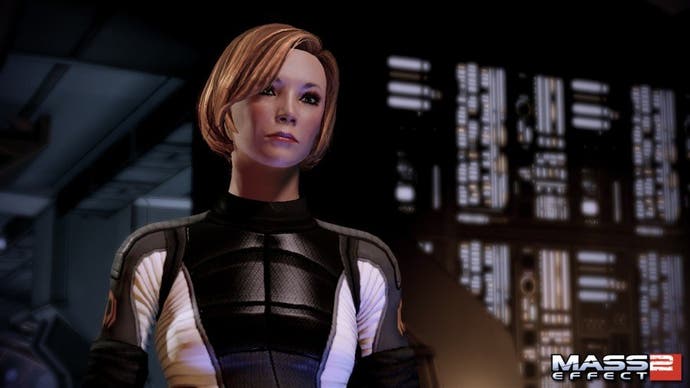
The changes, and the rewards BioWare provides for players resuming from a Mass Effect save-file, are such that veterans of the first game are unlikely to find themselves overmatched for the rank-and-file enemies of the first few hours - but it is unlikely they would be bored even if they were. Your character inherits his moral decisions but can be re-specced completely, and the universe is a richer, more personal place for those who sought out the first game's side missions and spoke to its broad cast.
Rather like last year's Assassin's Creed II, Mass Effect 2 remembers that looting the places you visit is rather enjoyable as well, and this is infused at a fundamental level. In order to buy upgrade schematics and other items you collect credits, and these are located in wall safes, locked caches and numerous other places, often hidden behind hacking and circuit-breaking mini-games (the former addictive and tense, the latter slightly prosaic), while separate data pads fill in story blanks and open new side-mission possibilities.
Every mission's combat sequences are inevitably broken up by quieter moments when you rummage through the surrounding area for loot - credits, schematics, medi-gel and trinkets - and your new ship has caught the looting bug too. You may be on a very important mission to discover why human colonists have been disappearing, but you can also stop off at other unexplored planets to loot them for minerals, by way of a compelling mini-game where you probe the surface and watch for surges on a neighbouring oscilloscope.



